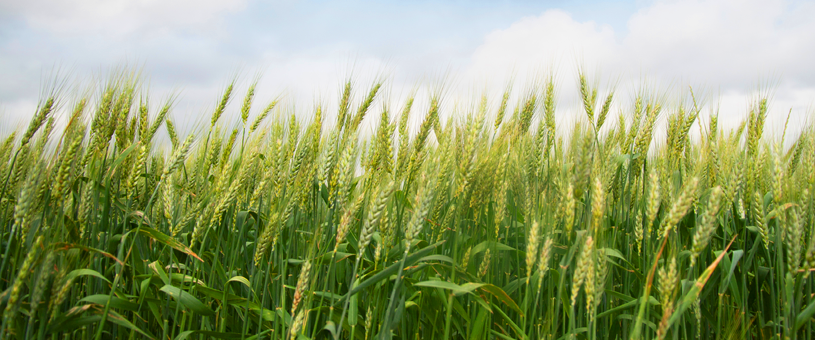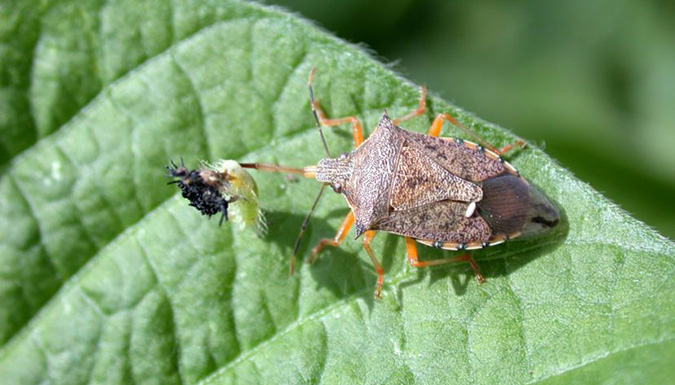Research Focus & Programming
-
Cereal Grains Breeding & Genetics
The Clemson small grains breeding program currently focuses on developing improved wheat and sorghum varieties. Goals include increasing productivity (via optimizing nutrient uptake and utilization), improving disease resistance (via screening for resistance and identifying genetic factors for resistance), and enriching feed grain quality (via targeting secondary metabolites).
Dr. Rick Boyles: Assistant Professor of Plant Breeding & Genetics
Dr. Sachin Rustgi: Associate Professor of Molecular Breeding
-
Corn Research
Corn research conducted at the Pee Dee REC includes examining cultural practices to prevent or avoid injury, trialing Bt corn varieties, and examining at-planting insecticides (including seed treatments) and foliar insecticides. Work is being done to examine the effects of Bt traits on the lifecycle of corn earworm and to evaluate resistance to Bt toxins.
Dr. Francis Reay-Jones: Professor of Entomology & IPM Program Coordinator
-
Cotton Research
Research and variety trialing are being done in cotton at the Pee Dee REC to provide growers with profitable varieties that require fewer inputs without sacrificing fiber quality. This research is done in partnership with the South Carolina Cotton Board, the South Carolina Cotton Growers Association, and the USDA-ARS to ensure that cotton remains one of the state’s leading commodities.
Dr. Mike Jones: Extension Cotton Specialist
Dr. Francis Reay-Jones: Professor of Entomology & IPM Program Coordinator
Dr. Todd Campbell: USDA-ARS cotton geneticist
Dr. Eric Billman: Cotton/Cover Crop Agronomist
-
Molecular Plant Breeding
Keeping pace with the latest advances in plant breeding, researchers at the Pee Dee REC are utilizing new molecular breeding approaches (such as gene editing) to compliment traditional breeding work. Current goals include enhancing crop nutrition, developing allergen-free crops, increasing genetic diversity in select crops, and developing novel eco-friendly biopesticides. With the obtainability and sheer quantity of genomic data available, work is being done to develop tools and technologies that allow breeders to efficiently utilize their data to better guide their breeding programs.
Dr. Wonkeun Park: Senior Scientist, Molecular Genetics of Cotton and Crop Breeding
Dr. Trevor Rife: Assistant Professor of Phenomics and Crop Improvement
Dr. Sachin Rustgi: Associate Professor of Molecular Breeding
-
Pathology
A thorough understanding of pathology is crucial in a successful agronomic system. Pathology research conducted at the Pee Dee REC aims to develop IPM approaches for disease management in the southeast.
-
Rural Health
Proper nutrition is vital to a healthy lifestyle. To better serve South Carolina citizens, the Pee Dee REC now houses researchers in the area of rural health!
Dr. Hannah Wilson: Assistant Professor
-
Soil Biogeochemistry & Soil Health
In this program, researchers at the Pee Dee REC aim to develop a critical understanding of soil physical, chemical, and biological processes that support soil health. The effects of conservation management practices and climatic variation on agronomic outcomes is also studied, with an overall goal to better understand soil ecology and improve sustainability.
Dr. Rongzhong Ye: Associate Professor of Soil Biogeochemistry & Soil Health
-
Sorghum & Small Grain Entomology
Entomologists in this program are involved in studying pests of grain crops in South Carolina. The researchers focus on identification, life cycle, plant injury, and management of insect pests. Information and recommendations based on their findings is provided in the South Carolina Pest Management Handbook. The MyIPM smartphone application complements the Pest Management Handbook. This free app is available in the Apple Store and Google Play Store. The app includes descriptions and photos of key pests of row crops, and information on integrated pest management strategies, including registered pesticides for each pest.
Dr. Francis Reay-Jones: Professor of Entomology & IPM Program Coordinator
Igor Sulzbacher Schardong: IPM Program assistant coordinator
-
Turfgrass Research
Turfgrass research at the Pee Dee REC focuses on managing insects, nematodes, mites, weeds, and other diseases. Researchers study and develop pest management programs, study pollinator interactions, and conduct trails that aim to examine cultural and chemical management practices. This research serves South Carolina’s vital turfgrass industry which includes golf courses, sod production, sports-field management, and professional lawn care.
Dr. Joe Roberts: Assistant Professor of Turfgrass Pathology and Nematology
-
Vegetable Breeding
The Pee Dee REC now boasts a vegetable breeding program. This program aims to utilize genomic tools and traditional plant breeding techniques to focus on the development of nutritionally dense, flavorful vegetables for production in South Carolina.
Dr. Jenna Hershberger: Assistant Professor of Vegetable Breeding and Genetics

SOUTH CAROLINA CROPS BLOG
Through the S.C. Crops Blog, Clemson agricultural scientists and Cooperative Extension Agents provide producers with the latest pest, weather, disease and variety trial information, and post news and updates from workshops and Field Days.
SC Crops BlogLAND-GRANT PRESS
Science-based, peer-reviewed publications written by Extension personnel and university scientists for professional and academic audiences, as well as owners and managers of livestock, horses, timber and land.
Visit Land-Grant Press
